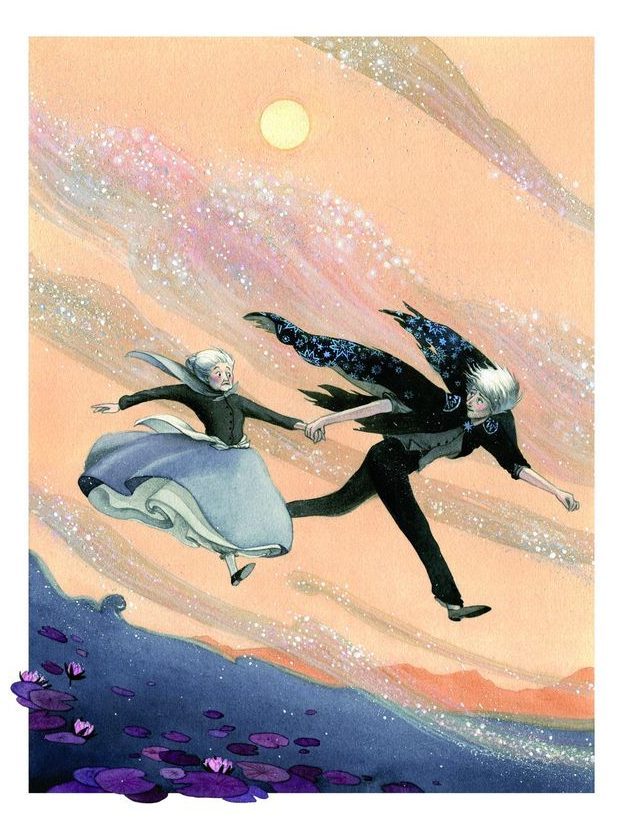By Caleb Carter
Jules is the new girl in the sleepy, affluent suburbia of Sam Levinson’s┬áEuphoria. Her hair is dyed a new shade of candy every episode and her constantly circulating sense of style recalls an Alicia Silverstone circa┬áClueless that has been┬ádipped in a vat of Japanese videogame juice: acid-stained and weird. Maybe it is because we view Jules through the enamoured gaze of our protagonist, Rue (played to a sullen tee by Zendaya), but Levinson’s world seems to orbit her. If Rue is the show’s foundation, then Jules is the radiant centrepiece and by the end of the first episode, we understand her as not only a┬áunique character but also one that is fiercely independent – sometimes, to a fault. Jules is a microcosm of Euphoria, summing up what makes HBO’s controversial new endeavour simultaneously so impressive and at times so flawed: it first and foremost has an identity┬áand it refuses to compromise that for anything.
Euphoria┬áis so unabashedly itself that it stealthily worms its way to your heart, surprising you as it does with exponentially complex layers of character. In that way, it feels like an updated┬áFreaks and Geeks, as its ostensibly superficial layers are peeled back, flipped and used to subvert and play on your expectations and before you know it, you’re hooked. At a glance, it is an archetypal high-school drama, sporting a usual cast of the over-attractive, over-grown “16 year old”, Jock, Junky, Cool Girl et al.; yet Levinson transcends tired ground simply because he is so breezily capable of portraying the characters’ internal worlds on screen. Often the viewers are ushered into Rue’s reality as it warps to reflect how she feels in what is a masterfully stylistic and engaging choice but also a direct line into that tempestuous young age where your mood infects and shapes your entire perspective. Inner space is sprayed outwards with dazzling finesse and as a result,┬áEuphoria┬áis strongest at its most aesthetically bountiful (a truly Insta-generation appeal). Almost futurist in design and style, the show’s shoe-gazey dreamscape feels like the LCD birthchild of that bright buzz of your laptop screen: lighting only a harsh white angle of your dark room but illuminating the entirety of your kaleidoscopic attention.

Newcomer Hunter Schafer’s infectiously sprightly embodiment of Jules is what carries the aforementioned character, but in a move that has been unanimously received as refreshing – Jules is given the space to breathe as a trans character not burdened by identity politics and allowed to exist simply as a teenager. This doesn’t mean her identity isn’t touched upon, however, as her character is progressively deepened and explored and it certainly doesn’t mean that Levinson strays from an assortment of other hot topics… For example, in contrast to the perpetually “leveling up” Jules is Rue. Permanently hoodie-d, Zendaya’s pessimistic but heartfelt narration and lens offers us an empathetic hand into the lives of the show’s main characters (each episode is framed by a deeper dive into one of the ensemble, meaning that as the show advances its shades and complexities grow more and more varied) and she is also just out of rehab, recovering from an addiction that threatens to push her over the precipice of relapse at any moment.
To Levinson, this is a personal story. In a┬áQ and A following the premiere of the first episode, the teary director revealed his own struggles with addiction as a teen, evidently grateful for the opportunity to express himself. But later in the same interview, a similarly emotional mother approaches the microphone to state her doubts in allowing her daughter – also a recovering addict – to watch the show, in case she is tempted by the relief that its characters find in their various vices. In response, Levinson shakily recounts how after watching the terrifying┬áRequiem for a Dream he left the theatre not disturbed but instead thinking “I really oughta start shooting heroin.” It’s a troublingly honest answer and was buttressed by sincere compassion, but it also highlights the potentially complicated territory that comes with the director’s OTT style. Even though, as well as substance abuse, it weightily┬ádangles toxic masculinity, sexuality, underage porn, Freudian fetishes, abusive relationships and a plethora of other modern buzzwords from its neck,┬áEuphoria┬áis hardly a Ken Loach film: it is camp, loud, swear-y and fast. There is a dick-pic guide and a musical number. For many of us, the controversy and spectacle will be one of the reasons we will binge the show. For others, subtlety will be given such a middle finger that it could be… a lot: too much; or, at worst, problematic.
Make no doubt about it: Euphoria is cheesy, kind of trashy in a way, and premature reactions will be distracted by the excess and the flamboyant. Yet despite its stakes being outrageously high for most well adjusted high-schoolers to relate to, all the conflict still seems to stem from a contemporary and empathetic understanding of youth, of chaotic realities and identity in constant flux. And because of this, and its visual and musical flare (with an actually outstanding synth-stricken score and soundtrack helmed by Labrinth), the show plays more like Perks of Being a Wallflower by way of Petra Collins, sharing with her photography that same nocti-hazed, cyber-ennui: glazed with soft focus, tired eyes and pastel.
If all this sounds like your guiltily endearing cup of #aesthetic, also understand that it is a wild and messy ride that can become too obsessed with its own subject matter.┬áBut it is just so aware and so proud of what it is. It loudly strides into HBO’s dusty cafeteria of shows about Russian radiation, depressed detectives and disappointing dragons with jazz hands, platform shoes and mountains of dusky, neon glitter, arriving with the last generation of kids who will ever watch TV on a TV. Yes, the writing sometimes sounds like the cringey hyperbole of a teenagers diary, but the way Euphoria feels is fucking addictive.


